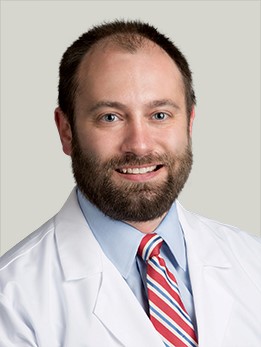
Benjamin Shogan, MD, is a surgeon specializing in colon and rectal surgery at the University of Chicago Medicine. Since joining the UChicago faculty in 2017, funding from GIRF has allowed him to advance innovative investigations that could improve surgical outcomes for patients with conditions including colon cancer and Crohn’s disease.
One of Dr. Shogan’s recent research projects focuses on the healing process after a portion of the colon is surgically removed and the remaining sections are reconnected. In some cases, the rejoined sections of the intestine do not heal properly, resulting in a dangerous complication called an anastomotic leak. Dr. Shogan and his colleagues found that bacteria in the gut could be contributing to the problem.
They found that in animal models, an anastomotic leak was more likely to occur if specific types of bacteria were present in the gut. The bacteria colonized the healing tissue after surgery and created an enzyme that ate away at collagen, a protein that is essential in the healing process. This damaged the healing tissue, potentially resulting in an anastomotic leak. These insights led to strategies for reducing the risk of complications after colorectal surgery.
Dr. Shogan is also investigating how gut bacteria influence the recurrence of cancer after surgery. In up to 20 percent of patients, cancer comes back after surgical treatment. Dr. Shogan is working to determine whether differences in the bacteria in the gut can help to explain why the cancer returns in some patients, but not in others.
He found that when mice are fed an unhealthy diet that causes them to become obese, the bacterial community in their intestines changed, and they were at higher risk of cancer returning. Further research found that the strains of bacteria associated with the recurrence of cancer in mice are more likely to be present in human patients who are obese than in those who are not. Obesity is known to be a risk factor for the return of cancer, and the associated shifts in the gut microbes in obese patients could help to explain why.
Dr. Shogan is currently collecting samples of fecal material from colon cancer patients in order to determine which microbes could be contributing to the recurrence of the disease. By revealing the connections between diet, weight, gut microbes, and cancer recurrence, Dr. Shogan’s leading-edge research could result in new ways to prevent cancer from coming back after surgery.
